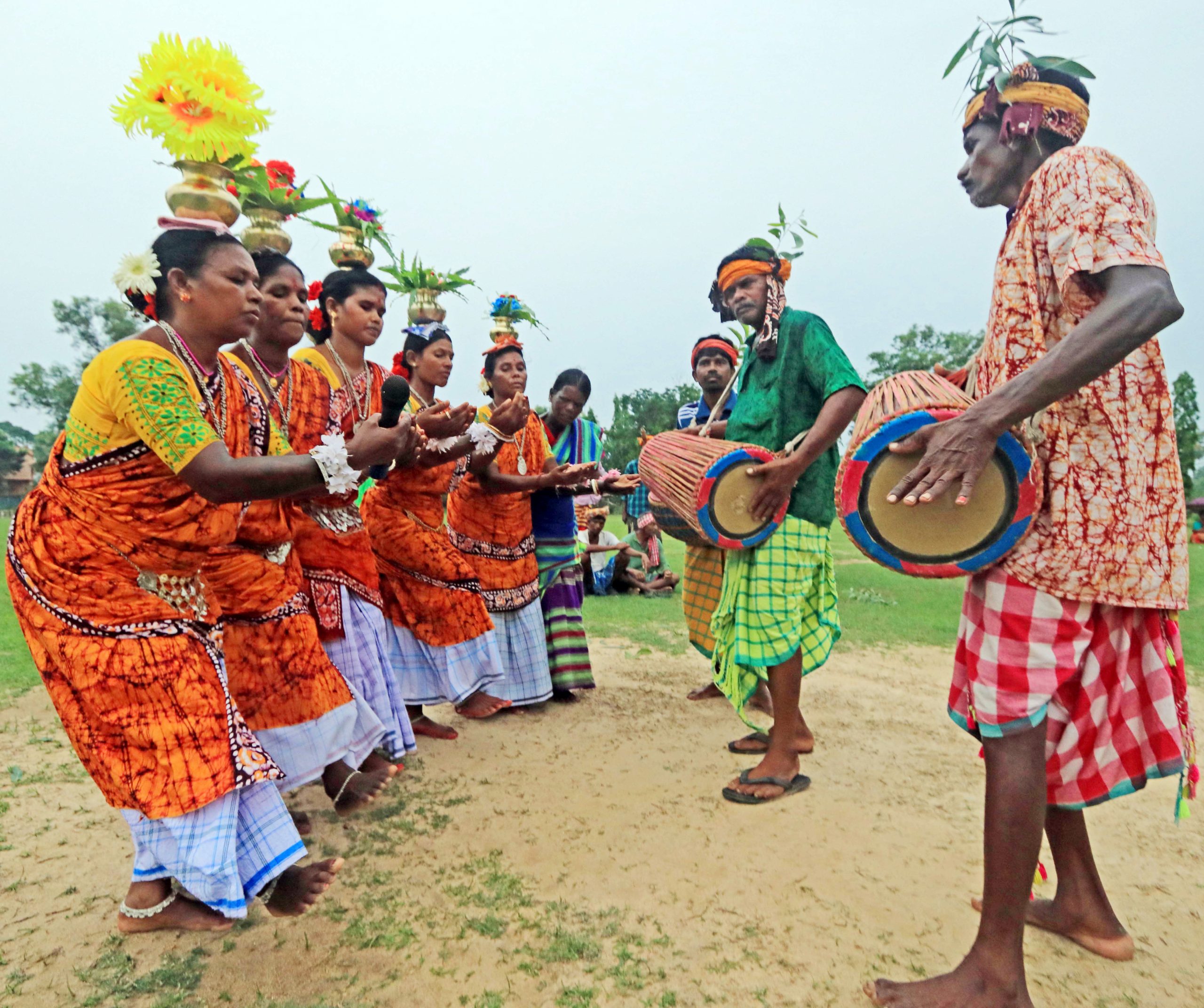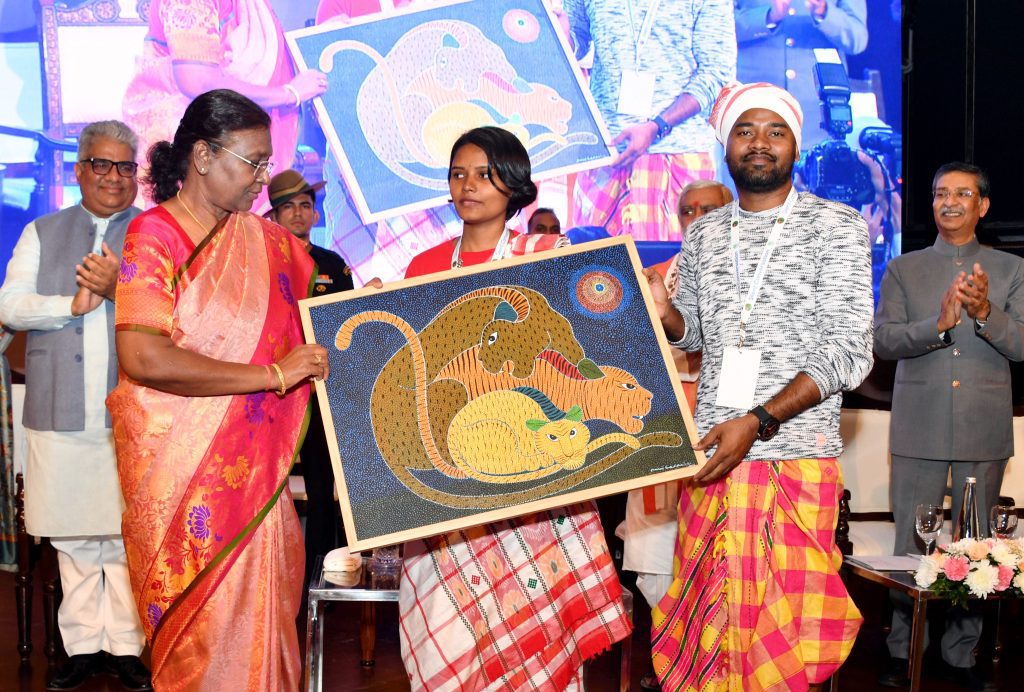India’s most extensive tribal development initiative, the Pradhan Mantri Janjatiya Unnat Gram Abhiyan (PM JUGA), has reached over 5 crore tribal citizens across 63,000 villages since its launch by Prime Minister Narendra Modi on October 2, 2024, from Hazaribagh, Jharkhand. With a financial outlay of ₹79,156 crore, the scheme covers 549 districts-accounting for nearly 71% of the country-and is implemented through coordinated efforts of 17 line ministries.
This initiative was approved by the Union Cabinet in September 2024 and is officially also known as the Dharti Aaba Janjatiya Gram Utkarsh Abhiyan. The Union Government has contributed ₹56,333 crore while ₹22,823 crore has come from the states. The mission is being implemented in tribal-majority villages with at least 500 residents and more than 50% tribal population, as well as in villages in Aspirational Districts with at least 50 tribal inhabitants.
The scheme reflects the Prime Minister’s call for inclusive and all-round development. During his Independence Day address in 2021, Prime Minister Modi had emphasized that regions such as coastal belts and tribal areas would play a foundational role in India’s development. That vision has been realized through large-scale, data-driven efforts on the ground over the past year.
Under PM JUGA, over 20 lakh pucca houses are being constructed through the PM Awas Yojana (Gramin), and 25,000 km of roads are being built under the PM Gram Sadak Yojana to improve connectivity in remote tribal areas. The Ministry of Power is working to electrify 2.35 lakh unconnected tribal households, while the Ministry of Petroleum and Natural Gas is providing 25 lakh LPG connections under the PM Ujjwala Yojana.
In the education sector, the government is upgrading ashram schools and tribal hostels under Samagra Shiksha, targeting 1,000 new hostels for tribal children. The Ministry of Tribal Affairs is enhancing infrastructure by setting up tribal marketing centres, sickle cell treatment units, and offering incentives to high-performing tribal districts.
Healthcare interventions include the deployment of 1,000 mobile medical units in remote villages under the Ayushman Bharat Health Infrastructure Mission, while 8,000 Anganwadi Centres-including 2,000 newly constructed and 6,000 upgraded-are being established to improve nutrition and early childhood education. The Ministry of AYUSH is also setting up 700 Poshan Vatikas or nutrition gardens to provide access to fresh vegetables and medicinal plants.
The Department of Telecommunications is working to bring high-speed broadband to 5,000 tribal villages through BharatNet and the Universal Service Obligation Fund. In addition, the Ministry of Jal Shakti has extended water supply services to every household in eligible villages and to 5,000 remote hamlets with fewer than 20 tribal households.
To promote livelihood opportunities, 10,000 tribal groups and 1 lakh individuals have received support for fish culture under the PM Matsya Sampada Yojana. The National Livestock Mission is helping 8,500 tribal individuals and groups with livestock-based income opportunities. The Ministry of Tourism is funding 1,000 tribal homestays under the Swadesh Darshan scheme to foster sustainable tourism in tribal regions.
Digital inclusion is also a central focus of PM JUGA, with the Ministry of Electronics and IT integrating Aadhaar services, DigiLocker, and UPI-based digital payments under the Digital India initiative. Skilling initiatives led by the Ministry of Skill Development are supporting the capacity building of 1,000 Van Dhan Vikas Kendras (VDVKs) and other tribal collectives.
Governance reforms are being implemented through the Ministry of Panchayati Raj, which is conducting capacity-building programs for Gram Sabhas and stakeholders in tribal areas. These programs are designed to expedite the processing of Forest Rights Act claims and strengthen local democratic structures.
The scheme builds upon the Pradhan Mantri Janjati Adivasi Nyaya Maha Abhiyan (PM JANMAN), which was launched in November 2023 to benefit 28 lakh individuals from Particularly Vulnerable Tribal Groups (PVTGs) in 22,000 villages. PM JUGA, in contrast, extends its scope to all Scheduled Tribes living in tribal-majority villages and Aspirational Districts, integrating a broader socio-economic development mandate.
The impact of PM JUGA is visible on the ground. In Bairlutygudem, a remote tribal village in Andhra Pradesh’s Nandyal district, decades of water scarcity were resolved through the Jal Jeevan Mission. The village, home to Chenchu and Koya tribes, saw the formation of a Village Water and Sanitation Committee led by local women, ensuring tap connections for all 64 households. Women trained in water testing now manage quality monitoring, reducing risks and improving public health.
The Government of India has aligned PM JUGA with the United Nations’ 2030 Agenda for Sustainable Development. It addresses key Sustainable Development Goals including good health and well-being (SDG 3), quality education (SDG 4), decent work and economic growth (SDG 8), and infrastructure development (SDG 9).















